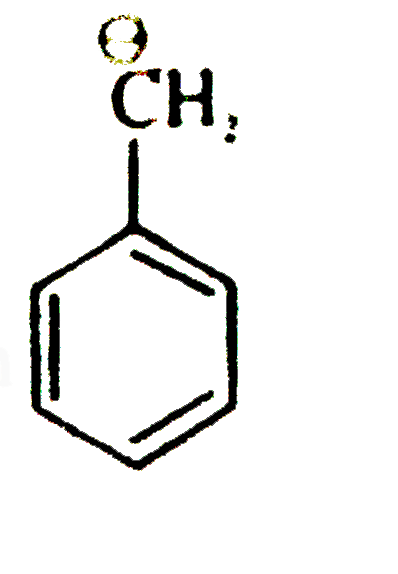(A) Tertiary butyl carbonion is less stable than methyl carbanion.
(R) +I effect of the three methyl groups in tertiary butyl carbanion tends to make it more stable than methyl carbanion.
A
If both assertion and Reason are true, and reason is the true explanation of the assertion.
B
If both assertion and reason are true, but reason is not the true explanation of the assertion.
C
If assertion is true, but reason is false
D
If both assertion and reason are false
Video Solution
Text Solution
The correct Answer is:D
Correct assertion. tert-Butyl carbanion is less stable than methyl carbanion.
Correct reason. +I-effect of the CH3 groups destabilize the tert-butyl carbanion relative to methyl carbanion.
|
Updated on:21/07/2023
Related Playlists
- BOOK - PRADEEPCHAPTER - ORGANIC CHEMISTRY-SOME BASIC PRINCIPLES TECHNIQUESEXERCISE - Competition Focus (Jee (Main and Advanced)/Medical Entrance) VII. Numerical Values Type Questions1videos
ORGANIC CHEMISTRY-SOME BASIC PRINCIPLES TECHNIQUES
- BOOK - PRADEEPCHAPTER - HYDROGEN EXERCISE - COMPETITION FOCUS (Assertion-Reason Type Questions) Type 215videos
HYDROGEN
- BOOK - PRADEEPCHAPTER - P-BLOCK ELEMENTS (NITROGEN FAMILY)EXERCISE - Competition focus jee(main and advanced)/ medical entrance special) (VIII. Assertion-Reason Type Questions)10videos
P-BLOCK ELEMENTS (NITROGEN FAMILY)
Similar Practice Problems
- Question 1 - Select One
(A) Tertiary butyl carbonion is more stable than methyl carbanion.
(R) +I effect of the three methyl groups in tertiary butyl carbanion tends to make it more stable than methyl carbanion.AIf both (A) and (R) are correct and (R) is the correct explanation of (A).BIf both (A) and (R) are correct but (R) is not the correct explanation of (A).CIf (A) is correct but (R) is incorrect.DIF (A) is incorrect but (R) is correct. - Question 1 - Select One
(A) Tertiary butyl carbonion is less stable than methyl carbanion.
(R) +I effect of the three methyl groups in tertiary butyl carbanion tends to make it more stable than methyl carbanion.AIf both assertion and Reason are true, and reason is the true explanation of the assertion.BIf both assertion and reason are true, but reason is not the true explanation of the assertion.CIf assertion is true, but reason is falseDIf both assertion and reason are false - Question 1 - Select One
Assertion: tert-Butyl carbanion is less stable than methyl carbanion.
Reason: The +1-effect of the CH3 groups tends to stablize the tert-butyl carbanion.AIf both assertion and reason are true and the reason is the correct explanation of the assertion.BIf both assertion and reason are true and the reason is the correct explanations of the assertionCIf assertion is true but reason is false.DIf assertion is false but reason is true. - Question 1 - Select One
A tertiary butyl carbocation is more stable than a secondary butyl carbocation because of which of the following ?
A+R effect of −CH3 groupsB−R effect of −CH3 groupsCHyperconjugationD−1 effect of −CH3 groups - Question 1 - Select One
A tertiary butyl carbocation is more stable than a secondary butyl carbocation because of which of the following?
A−I effect of −CH3 groupsB+R effect of −CH3 groupsC−R effect of −CH3 groupsDHyperconjugation - Question 1 - Select One
Assertion(A):Me3−C is more stable than −CH3.
The +I effect of the three Me groups in Me3−C tends to make it more stable than −CH3.AIf both (A) and ( R) are true and ( R) is the correct explanation of (A).BIf both (A) and ( R) are true but ( R) is not correct explanation of (A).CIf (A) is true but ( R) is false.DIf (A) is false but ( R) if true. - Question 1 - Select One
Assertion: tert-Butyl carbanion is less stable than methyl carbanion.
Reason: The +1-effect of the CH3 groups tends to stablize the tert-butyl carbanion.AStatement-1 is True, Statement-2 is True, Statement-2 is a correct explanation for statement-1.BStatement-1 is True, Statement-2 is True, Statement-2 is not a correct explanation for statement-1.CStatement-1 is True, Statement-2 is False.DStatement-1 is False, Statement-2 is False - Question 1 - Select One
Assertion(A):p-methyl benzyl carbocation (I) is more stable than benzyl carbocation (II).
Reason(R) Heterovalent or no bond resonance.AIf both (A) and ( R) are true and ( R) is the correct explanation of (A).BIf both (A) and ( R) are true but ( R) is not correct explanation of (A).CIf (A) is true but ( R) is false.DIf (A) is false but ( R) if true.



